British troops leave Helmand province for the last time
UK forces have left Camp Bastion in Helmand Province for the last time, handing the base over to the Afghan National Army (ANA).
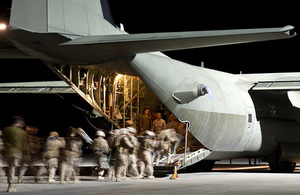
British troops leaving Camp Bastion for the final time in the back of a RAF Hercules transporter aircraft [Picture: Corporal Andrew Morris RAF, Crown copyright]
UK Armed Forces have left the Bastion-Leatherneck complex, the final camp in Helmand Province, for the last time, handing the base over to 215 Corps of the ANA.
British troops and United States Marine Corps personnel who had been serving under the International Security Assistance Force’s Regional Command (Southwest) (RC (SW)) redeployed to Kandahar after formally marking the end of combat operations at a ceremony yesterday.
Helicopters and aircraft from the UK and US moved personnel to Kandahar Airfield in preparation for their return home.
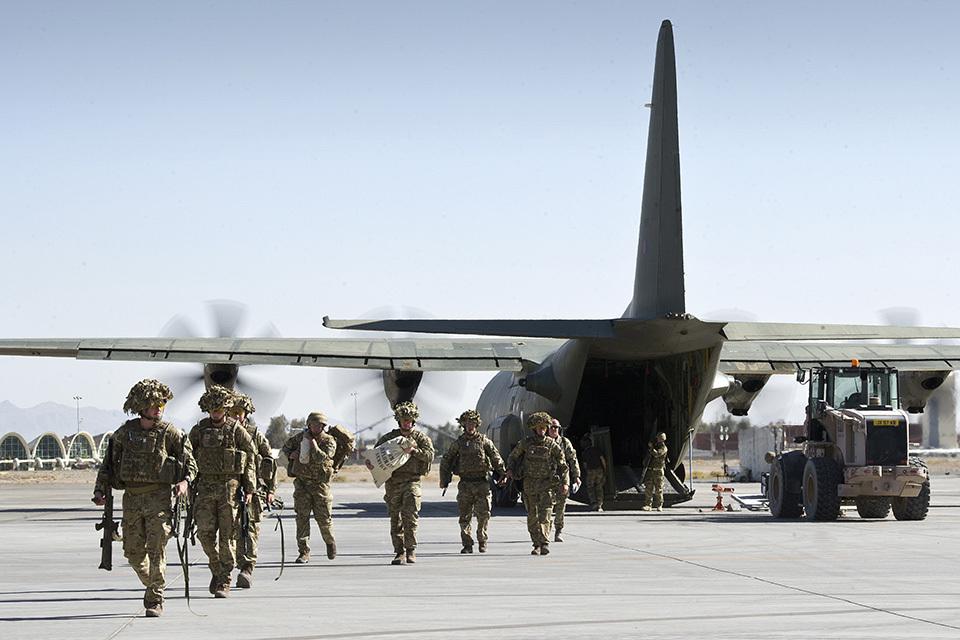
British military personnel arrive at Kandahar Airfield from a Hercules transport aircraft having departed Camp Bastion for the final time time [Picture: Corporal Andrew Morris RAF, Crown copyright]
Defence Secretary Michael Fallon said:
This is a historic moment for the UK’s Armed Forces and we leave with our heads held high.This orderly transition underlines the progress that we have made alongside our allies over the past 8 years.
We leave Helmand in good order, having transferred Camp Bastion to the ANA to use alongside their own Camp Shorabak which will allow them to continue to ensure security and stability in that part of their country.
He continued:
Thanks to our Armed Forces and our Afghan and coalition allies, Afghanistan is no longer a safe haven for terrorists.
In bringing our troops home, our efforts will now focus on the NATO Resolute Support Mission, developing the Afghan security ministries and training the future leaders of the ANA at the Officer Academy in Kabul.
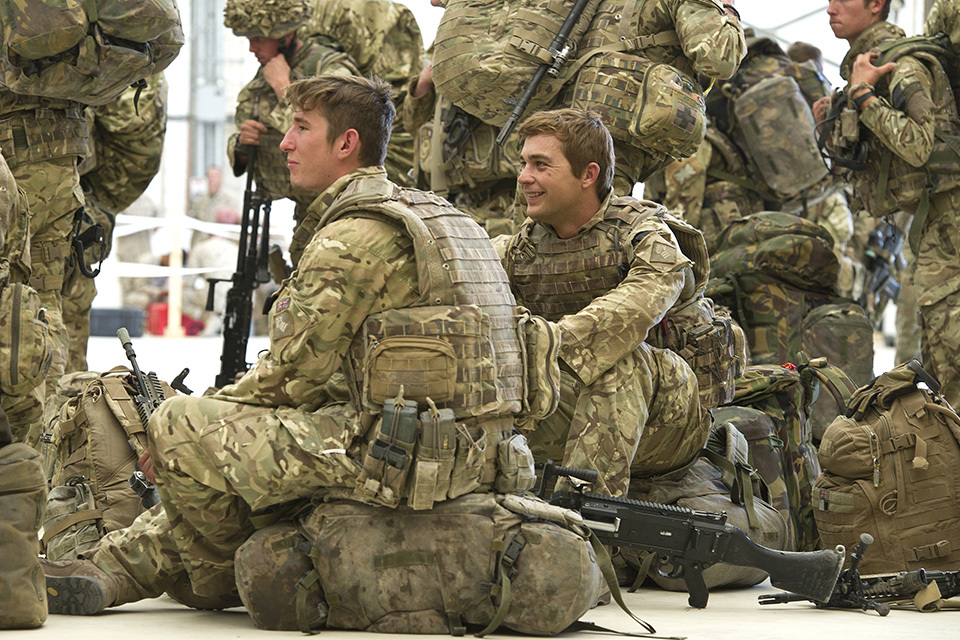
British military personnel at Kandahar Airfield having departed Camp Bastion for the final time [Picture: Corporal Andrew Morris RAF, Crown copyright]
Brigadier Rob Thomson, Deputy Commander RC (SW) and the senior British officer in Helmand, said:
This is the final step in a long-process of transferring all our bases to the ANA.
The Afghan National Security Forces (ANSF) have repeatedly demonstrated that they are more than ready to tackle the insurgency on their own, as they have been doing with limited ISAF support since June 2013.
We can be proud of what we have achieved here. There is no doubt that we have contributed to a brighter future for Afghanistan.
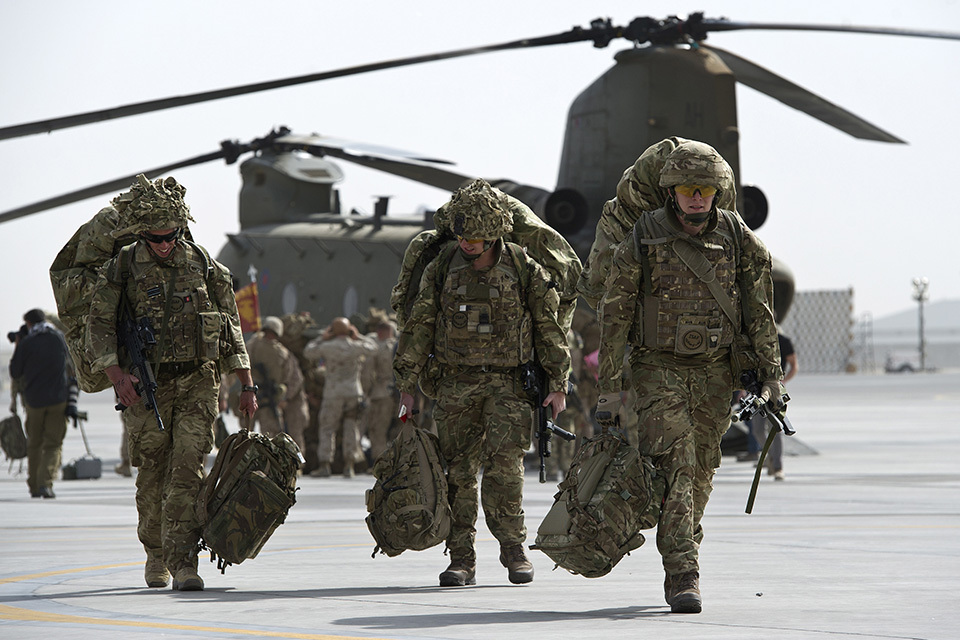
British military personnel arrive at Kandahar airfield on a Chinook helicopter [Picture: Corporal Andrew Morris RAF, Crown copyright]
Major-General Sayed Malouk, Commander 215 Corps of the ANA said:
We thank the UK and other nations for their efforts in Helmand. Without their training and support we would not now be in a position to take on responsibility for security.
Our ISAF partners have fought long and hard in this part of our country. It is now our responsibility to provide security on our own.
Camp Bastion, built in early 2006, was the hub of British and coalition forces operations in Helmand Province. At the height of the UK operation it was the centre of a network of 137 bases in the Province, all of which have now been handed over to the ANSF or remediated.
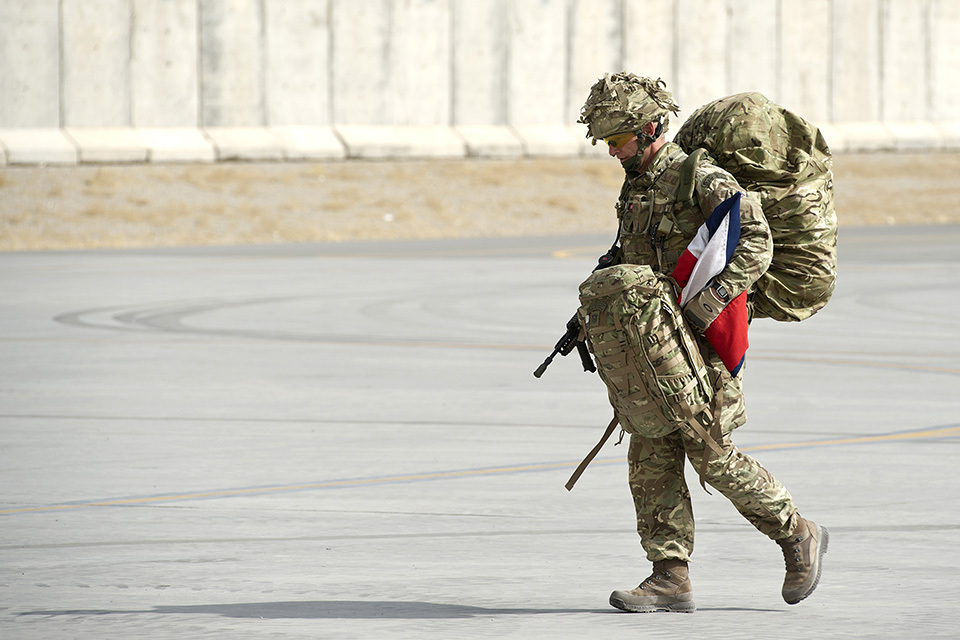
An RAF Regiment Officer arrives at Kandahar Airfield carrying the Union Flag that was lowered at Camp Bastion for the last time on Sunday [Picture: Corporal Andrew Morris RAF, Crown copyright]
The UK has had a military presence in Afghanistan since October 2001, when troops deployed as part of the NATO response to the 11 September 2001 terrorist attacks in the US.
The British effort moved to Southern Afghanistan when Task Force Helmand was formed in April 2006 to tackle a growing insurgency in the region.
British and allied efforts in Helmand set the security context for the development of the ANSF, with recent ISAF operations focussing on training and mentoring Afghan forces.
In June 2013 the 340,000-strong ANSF took full responsibility for security across Afghanistan and since then they have been responsible for 99% of operations.
Notable achievements have included planning and delivering the security for the successful Presidential elections in April during which seven million Afghans turned out to vote.